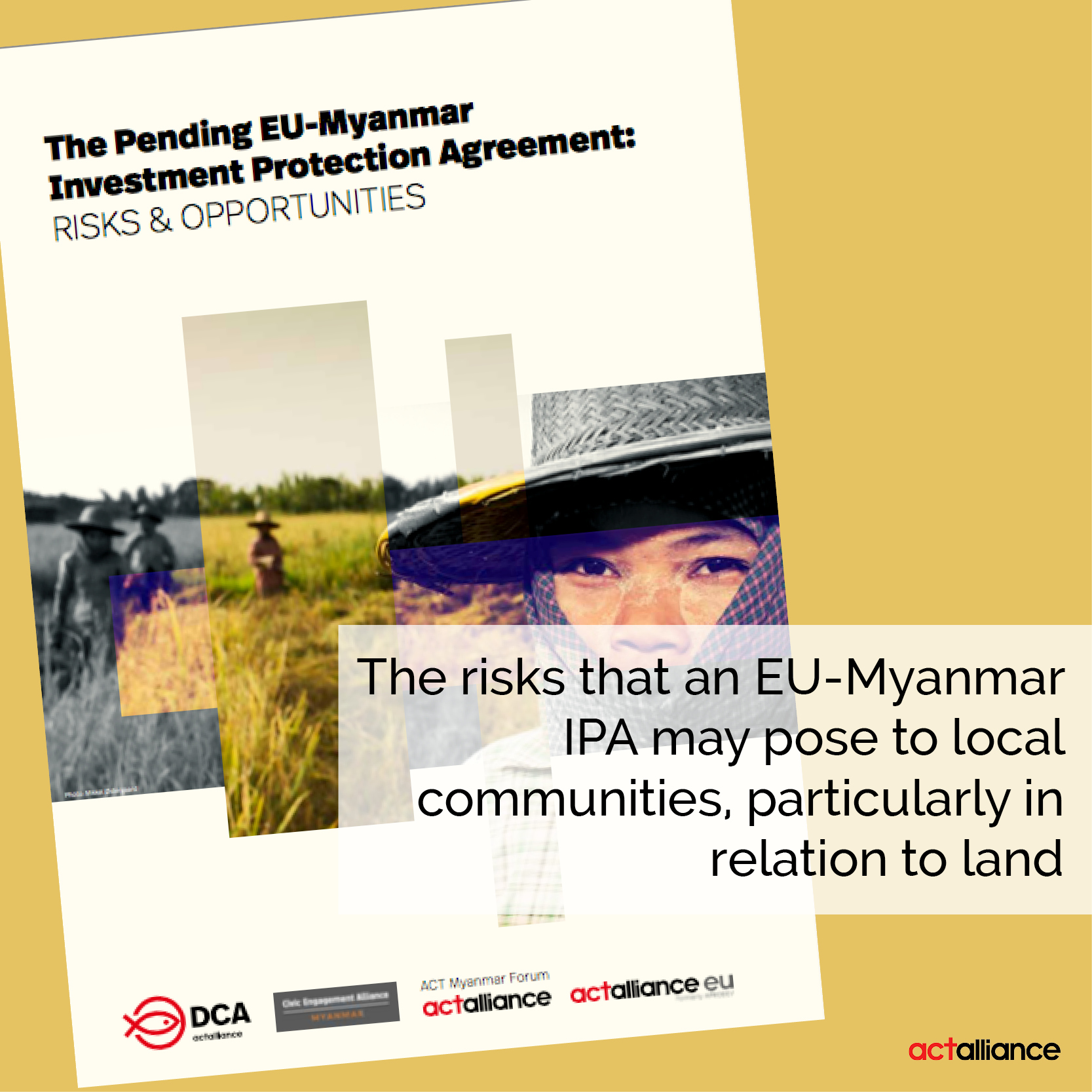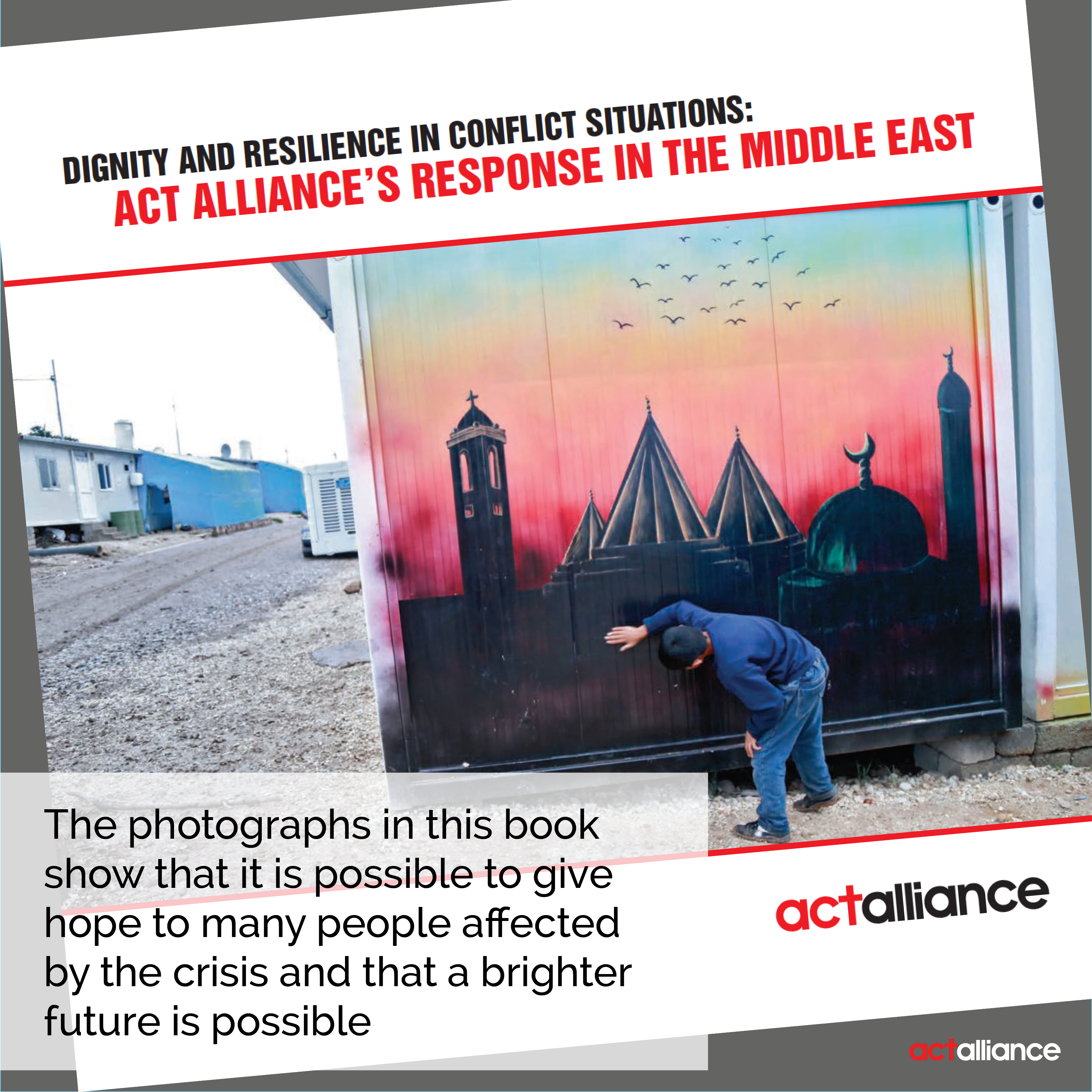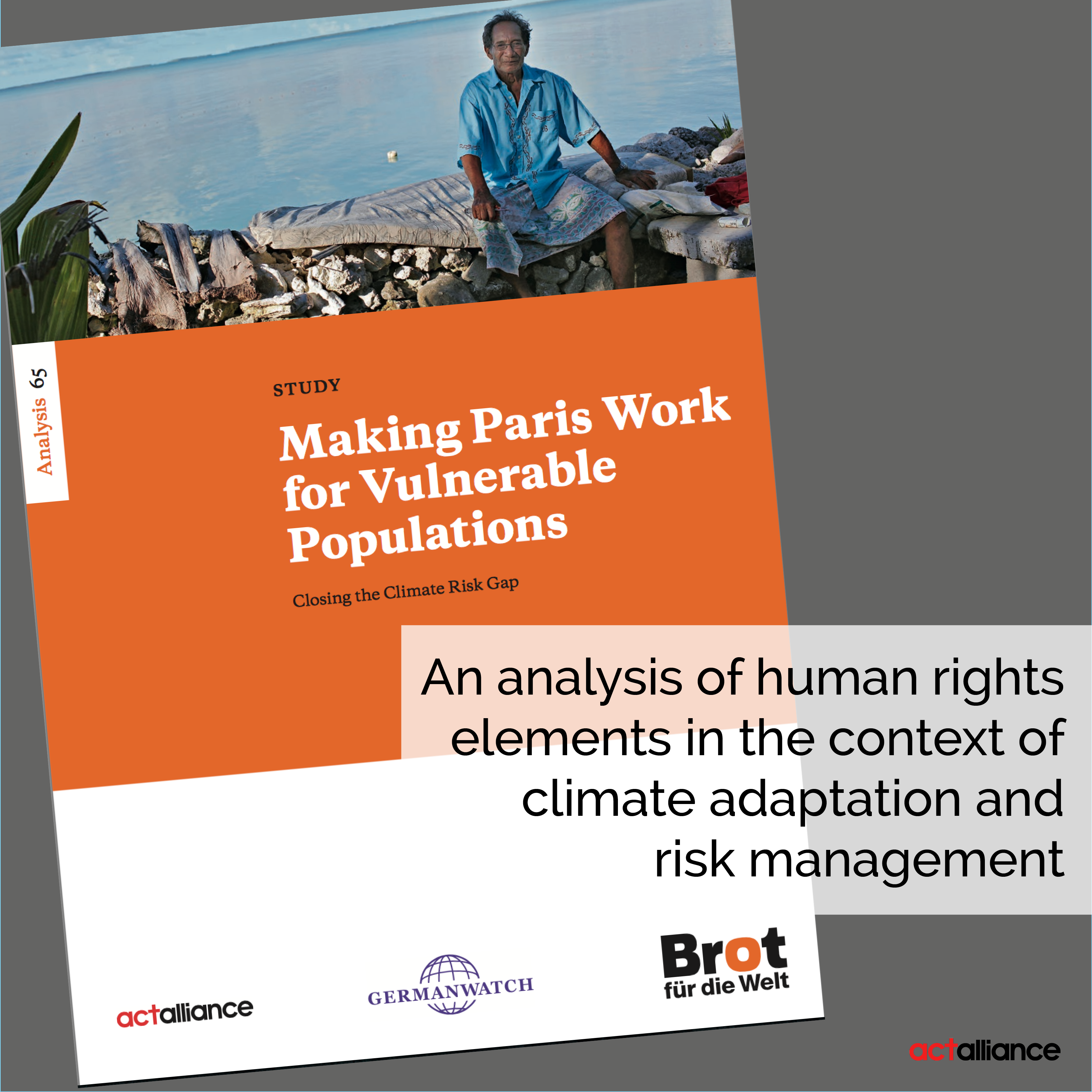Dignity and resilience in conflict situations: ACT Alliance’s response in the Middle East

In the midst of the situation facing the peoples of the Middle East, ACT Alliance members are working to bring hope, dignity and resilience to crisis affected populations and those living in deprivation.
This photo-book is an attempt to bring the stories of hope amid the gloomy context that populations of the Middle East have had to endure, some having lived as internally displaced persons and as refugees in both host communities and camps within the region and beyond.
See the pdf HERE
Dignity and resilience in conflict situations: ACT Alliance’s response in the Middle East
In the midst of the situation facing the peoples of the Middle East, ACT Alliance members are working to bring hope, dignity and resilience to crisis affected populations and those living in deprivation.
This photo-book is an attempt to bring the stories of hope amid the gloomy context that populations of the Middle East have had to endure, some having lived as internally displaced persons and as refugees in both host communities and camps within the region and beyond.
See the pdf HERE
Dignity and resilience in conflict situations: ACT Alliance’s response in the Middle East
In the midst of the situation facing the peoples of the Middle East, ACT Alliance members are working to bring hope, dignity and resilience to crisis affected populations and those living in deprivation.
This photo-book is an attempt to bring the stories of hope amid the gloomy context that populations of the Middle East have had to endure, some having lived as internally displaced persons and as refugees in both host communities and camps within the region and beyond.
See the pdf HERE
Tokatoka declaration on Climate Change, Disaster Risk Reduction and Resilience
A Workshop on Climate Change Disaster Risk reduction & Adaptation in the Pacific Region was held in Nadi, Fiji, from 14 to 17 September. Co-hosted by the Pacific Conference of Churches (PCC) and ACT Alliance, the workshop was supported by ACT members Brot für die Welt and Church of Sweden.
Representatives from PCC secretariat; member churches from French Polynesia, Fiji, Kiribati, Papua New Guinea, Samoa, Solomon Islands, Tonga, Tuvalu and Vanuatu; ACT secretariat and regional office, the Pacific, Australia and New Zealand Forum (PANZ) and Germany, and international experts have attended the workshop
According to the ACT Regional Representative, Asia and the Pacific, Anoop Sukumaran, “the workshop succeeded in bringing together member churches, institutions and organisations of ACT Alliance and the Pacific Conference of Churches (PCC) to discuss and build up capacity on climate change associated disaster risks, and challenges and approaches to foster climate resilience and climate protection in terms of both, policies and programs at local, regional and international levels”.
Furthermore, the workshop enabled exchanging lessons learned, identifying synergies and entering into a dialogue on possible future co-operations between ACT and PCC members to better protect the most vulnerable due to climate change.
The Tokatoka Declaration n Climate Change Disaster Risk reduction & Adaptation has been developed at the end of the workshop.
Read the document here: tokatoka-declaration-final


